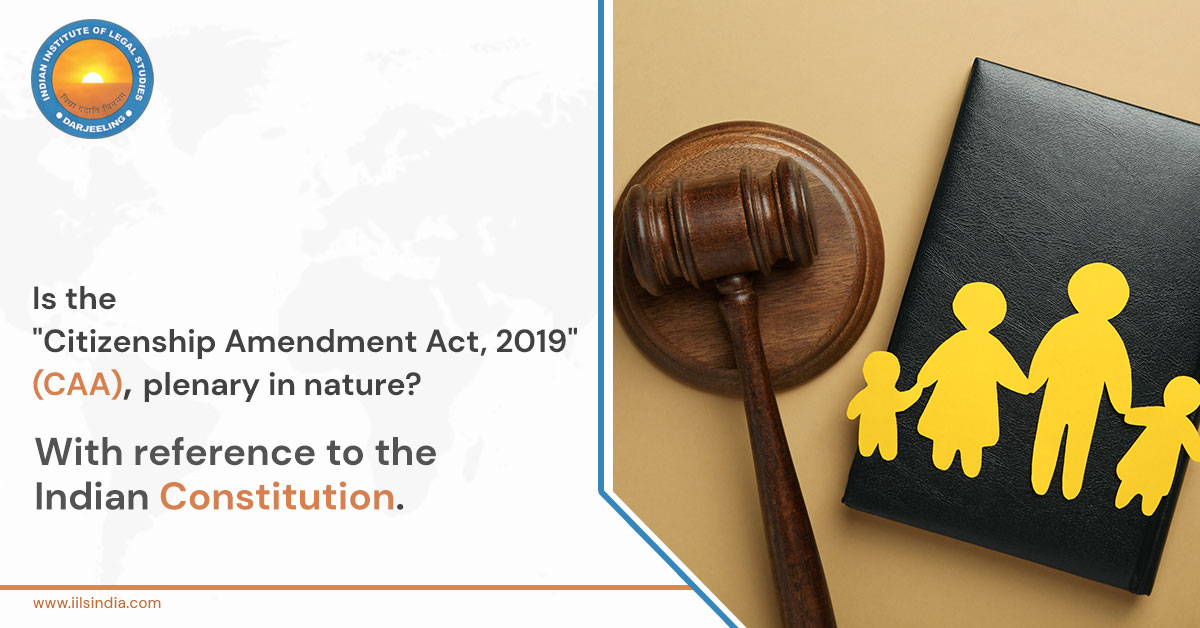Citizenship means the relationship between a person and a country. Each country grants citizenship to a foreigner who resides in a country for a specified span of time. Law Study in India will try to help you to know that citizenship allows a person to legitimately live in the country. and the person residing in a country is known as a citizen of the country, according to the Law Study in India as provided by the constitution of India, the Term citizen is not defined but the particulars of different types of a person specified for citizenship is discussed in part 2 (from Article 5 to Article 11). Citizenship in India is given under the Union list of the Constitution of India as taught in BA LL. B Colleges.
After the country was divided, two waves of immigration occurred from West Pakistan to India. During the first wave, which commenced on March 1, 1947, many Sikhs and Hindus came here. During the second wave in 1948, many Indian Muslims who had migrated to West Pakistan were seen returning to India due to the pathetic conditions of lifestyle there, especially in Karachi, which leads to many problems as it threatens cultural heritage and infrastructure, especially in the state of Assam. In 1985 to circumvent this complication, Assam Accord was formed by coming together 4 parties –
1. All Assam Barno parishad
2. All Assam student associations
3. Government of Assam and Government of India.
To protect the heritage, language, and culture of the Assamese people. It set the cut-off date, before 24th March 1971 that any migrants who have entered the state of Assam before that date will be granted citizenship with all the rights that normal citizens come with it. Accordingly, the parliament enacted the citizenship act, of 1955 as taught in BA LL. B Colleges. After the enactment of the Citizenship Act of 1955, a person can apply for Indian citizenship in five ways: by place of birth, by registration, by lineage, by naturalisation, and by territorial incorporation in India.
Many amendments have been made to this law, but the amendment made in 2019 has created a new history in the arena of law, Christians Buddhists, Jains Parsi Hindus, and Sikhs who immigrated to India from Pakistan, Bangladesh, And Afghanistan before 31 December 2014 under the Citizenship (Amendment) Act 2019 (CAA)., so the Citizenship Amendment Bill 2019 was opposed by opposition parties that claimed many rights were discriminated against Muslims, that such discrimination is unconstitutional under section 14 as taught in Best Colleges for LLB. Article 14 is one of the backbones of the Constitution. As this article states: “The State shall not deny any person the equal protection of law or equality before the law in the territory of India.” Equality before the law means that the state will treat all people without discrimination. Equal protection before the law means that the state will not enact a law or rule that discriminates between two people and violates Article 14. and Article 14 is not limited to citizens. It is equally beneficial to any person in the Indian territory, even to foreigners. And it also violates the concept of secularism as taught in Law Courses after Graduation. Since India is a secular country, the word secular was added to the preamble of the Indian constitution by the 42nd Amendment, and the Constitution of India supported a secular government. A secular state is one in which no religion is a priority for the nation and its people. Secularism is a doctrine that advocates the separation of state and religion or can be known as a doctrine that allows all religions to have equal status, and to be recognized and supported by the state. As taught in Best Colleges for LLB, article 15 of the Indian constitution also states that the state shall not discriminate on the basis of caste, creed, religion, sex, and place of birth and it has been regarded as the constitutional structural theory.
Therefore, it is clear that the act has not passed the reasonable classification tests under Article 14 which leads to violation and also infringes the concept of secularism by being inequitable and unreasonable. There is a gross violation of human rights under articles 14, 15, 25-28 as these elements are part of the doctrine of the basic structure of the
Constitution as taught in Law Courses after Graduation.
All these important issues and much more about the laws, rules, and regulations related to citizenship are taught in the citizenship and emigration law, constitutional law, and other important law papers which are deliberately addressed in 3 years LLB or 5 years BA.LLB, BBA.LLB, and BCOM.LLB (GENERAL / HONOURS ) courses in the law colleges of west Bengal.

